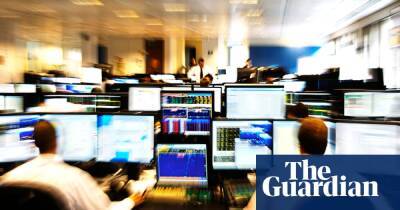Why the stock market hates the idea of rising interest rates
The specter of rising interest rates is spooking the stock market.
The Federal Reserve, the U.S. central bank, is expected to increase its benchmark rate several times this year to tame stubbornly high inflation. Fed chair Jerome Powell affirmed that likelihood on Wednesday.
The move would increase borrowing costs from near zero — where they've been since the beginning of the Covid pandemic — for businesses and consumers.
The forecast has caused stocks to nosedive in January.
The S&P 500 index is down about 9% for the year. At one point this week, the basket of U.S. stocks dipped below 10% — the first time that's happened since the initial pandemic turmoil of March 2020. The index closed down 0.2% Wednesday after Powell's remarks, erasing earlier gains.
Why does the stock market care?
Broadly, the reasons seem to be twofold: A slowdown of the U.S. economy and the prospect of other investments like bonds becoming more attractive relative to stocks.
When the Fed raises its benchmark interest rate, banks and lenders tend to raise borrowing costs, too. Mortgages, credit cards and other debt become pricier, reducing consumer spending and demand. Businesses also pay more to finance their operations.
More from Personal Finance:What the Fed's plan to raise interest rates means for youWhy new parents may qualify for another $1,400 stimulus check3 reasons to keep your will or estate plan updated
Broadly, this dampens the outlook for company profits and reduces investor enthusiasm for buying their stock.
«A tightening of monetary policy will put pressure on economic activity,» according to Blair duQuesnay, a certified financial planner and investment advisor at Ritholtz Wealth Management, who is based in New Orleans. «And it's by
Read more on cnbc.com




















